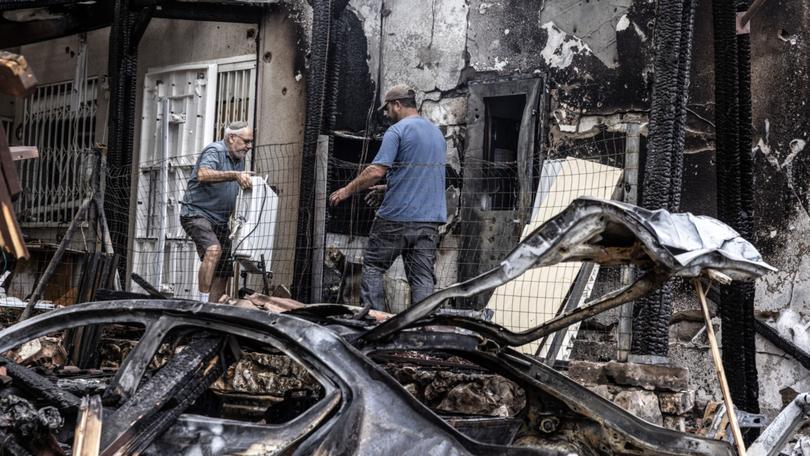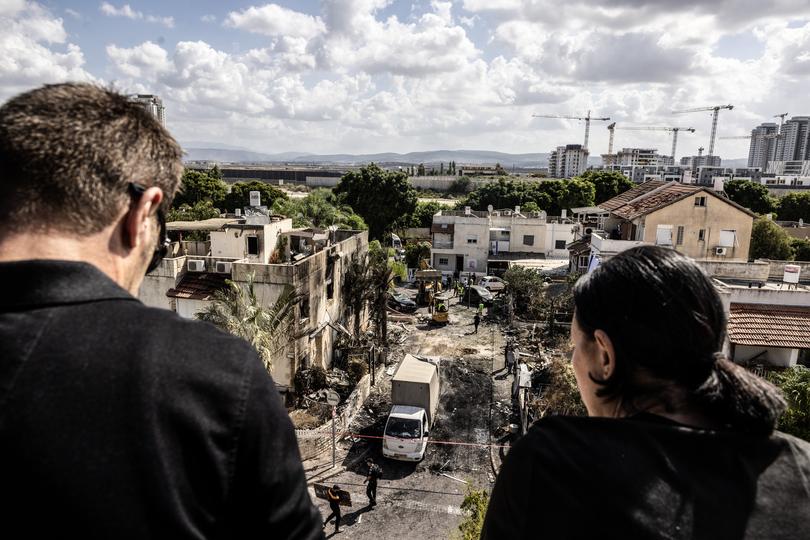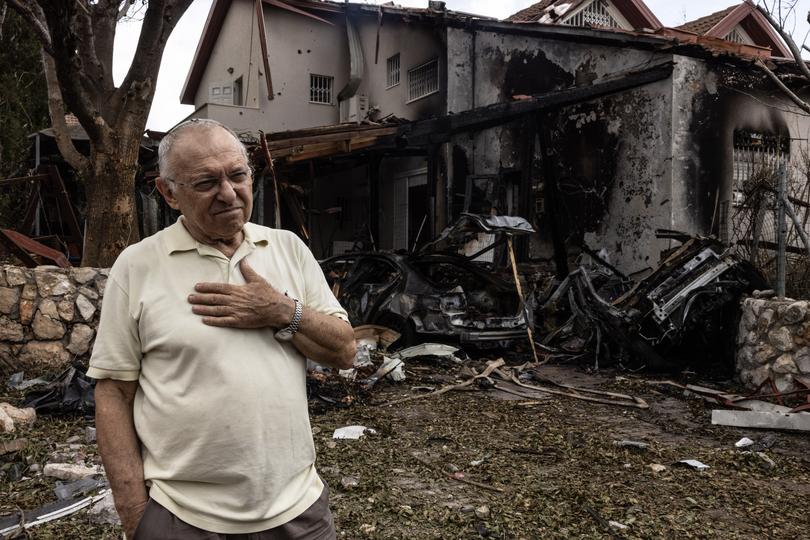THE WASHINGTON POST: Netanyahu vows ‘whatever action is necessary’ as Hezbollah clash widens
The Israeli PM issued the vow after Iranian-backed militants Hezbollah’s deepest attack into Israel with a massive strike.

Israeli officials issued blunt new warnings to Hezbollah on Sunday, threatening to pitch the long-simmering conflict along Lebanon’s border into all out war.
Despite calls to de-escalate, Israeli Prime Minister Benjamin Netanyahu vowed Sunday that his military will take “whatever action is necessary,” to eliminate the threat on Israel’s northern border, an echo of his own rhetoric in the lead-up to Israel’s invasion of Gaza last year.
The heightened rhetoric comes amid a spike in cross border strikes after a week of punishing Israeli attacks on the militant group based in Lebanon that Israeli officials said amounted to a “new phase” in the conflict. That has caused concern among Israel’s western allies, with top US and EU officials cautioning against escalation.
Sign up to The Nightly's newsletters.
Get the first look at the digital newspaper, curated daily stories and breaking headlines delivered to your inbox.
By continuing you agree to our Terms and Privacy Policy.“No country can accept the wanton rocketing of its cities, we can’t accept it either. We will take whatever action is necessary to restore security and to bring our people safely back to their homes,” Netanyahu said in a video statement.
Hezbollah has launched dozens of rockets, missiles and drones across the border into Israel in recent days. The militant group announced Sunday that it attacked a northern Israeli air base that appeared to be the deepest large barrage fired by the group since hostilities escalated last year. Hezbollah announced that it conducted a similarly deep attack in May, but it appeared to involve fewer munitions.
Israel said it struck hundreds of Hezbollah targets in Lebanon since Saturday. Lebanon’s Health Ministry announced that three people had been killed and four wounded in the strikes overnight. In Israel, sirens sounded across the north and Israel Defence Forces restricted gatherings in the area.
Israel also begun moving significant ground forces to its northern border, including the powerful 98th army division that participated in some of the heaviest fighting in Gaza, according to an official familiar with the matter.
“The price Hezbollah is paying is increasing,’‘ Israel Defence Forces Chief of Staff Herzi Halevi said Sunday. “Our strikes will intensify.”
In a town outside Haifa, Israel’s Iron Dome defence system failed to intercept a Hezbollah projectile late on Sunday. The munition landed on a residential street and left three lightly injured.
Israeli Defence Minister Yoav Gallant said Israeli operations “will continue until we reach a point where we may ensure the safe return of Israel’s northern communities to their homes.” He said Israel would “employ the means necessary” to achieve its goal.
Hezbollah began launching attacks against Israel on October 8 in solidarity with Hamas, since then violence along the border has displaced tens of thousands of people on both sides. For months, the White House has tried to broker a deal between Israel and Hezbollah, but failed to gain traction. Hezbollah, which is backed by Iran, has said it refuses to negotiate as long as Israel is still striking Gaza.

White House national security spokesman John Kirby warned that a full-fledged war in the north may not be “the best thing for Israel” and that “escalating this conflict militarily” is not the best way to get Israeli hostages home.
In a separate interview Sunday, Kirby said the United States is trying to negotiate a diplomatic solution to avoid a regional conflagration, but conceded US-led efforts to secure a cease-fire and hostage release in Gaza have been stalled for weeks.
And EU foreign policy chief, Josep Borrell, said “the European Union is extremely concerned by the escalation in Lebanon,” pledging that finding a diplomatic solution to the conflict would be high on the agenda at the upcoming United National General Assembly.
“A cease-fire is urgent, across the Blue Line as in Gaza. Civilians on both sides are paying a high price. They will also be the ones suffering once again the most in a full-blown war,” he said.
In Lebanon, Hezbollah is still reeling from Israeli attacks that killed senior members of the group’s leadership and dismantled key communications networks. Within a week, explosives placed inside pagers and radios maimed thousands, mostly Hezbollah fighters.
Hezbollah leader Hasan Nasrallah said the explosive attacks “crossed all red lines” and conceded they dealt a “major security and military blow,” to the militant group.
“It is an act of war against the people of Lebanon, Lebanon’s sovereignty. It is a declaration of war,” Nasrallah said in a video address Thursday.
The next day, an Israeli airstrike killed one of Hezbollah’s top commanders, Ibrahim Aqil in Beirut’s southern suburbs. The attack levelled a nine-story apartment building on a residential street in the middle of the afternoon. Residents at the site said entire families were at home in their apartments at the time of the attack.
The death toll from the strike rose to 51 on Sunday, according to Lebanon’s Civil Defence. Medical workers and children were among the casualties, according to the health ministry.
Emergency crews worked for days to clear the rubble and recover victims. Ten people remain unaccounted for and in some cases the dead will only be identifiable through their DNA, according to health and emergency personnel.
The target of the strike, Aqil was head of Hezbollah’s operations and wanted by the US government for his alleged role in abducting Americans in Lebanon in the 1980s. The State Department identified Aqil as a “principal member” of the Islamic Jihad Organization, which claimed responsibility for two bombings in Lebanon in the 1980s that killed 258 Americans.
Following the attacks, the United States issued fresh warnings to its citizens in Lebanon. American citizens were urged to leave the country through available commercial options, “due to the unpredictable nature of ongoing conflict,” between Hezbollah and Israel “and recent explosions throughout Lebanon.”

In Israel, in the town outside Haifa hit by a Hezbollah projectile Sunday, emergency workers hurried to clear charcoaled wreckage from a residential block.
Glass and blown-out cars littered the street. By midmorning, a large Israeli flag had been hung over the outer wall of one of two homes that were hit. Residents were shocked, and some were angry.
“Our government doesn’t care about us,” said Moshe Bichman, 73. In his home, a block away from the strike, windows were blown out by the blast. He said all-out war with Hezbollah was on the horizon.
“People will be leaving the country because there is no security here,” he said.
© 2024 , The Washington Post
